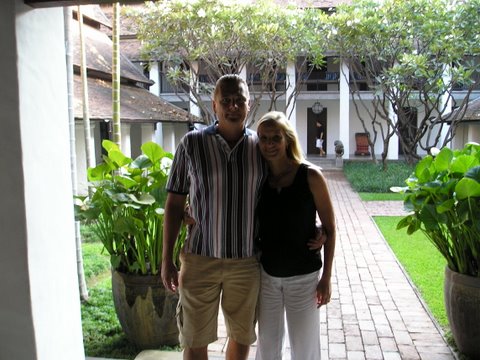Okay, so here’s the thing. Let’s imagine that some boffin has invented an infallible counselling therapy that’s guaranteed to fix any relationship, it’s a miracle cure. No matter how bad things have got, whether you are both screaming at each other and throwing kitchen cutlery around, or trying to resolve problems quietly and sensibly, this magic counselling therapy will cure all ills and smooth the most turbulent of troubled waters. It’s got a 100% success rate in all clinical trials, it’s been featured in all kinds of magazines and is all over the media, so you and your partner decide to sign up. The problem is, on your initial meeting, when you are shown into the counselling office you take an instant dislike to your therapist, it’s not just a mild personality clash, but a real strong dislike. Not only that, when they start speaking to you and your partner, and they begin the magical cure all counselling, you realize that your initial intuitive gut feeling was absolutely right, they come across to you as condescending, humourless, superior and irritatingly detached. You really don’t like them at all and find it hard to concentrate on the 100% guaranteed wisdom which they are beginning to dispense. Now, here’s the thing, will the magic relationship therapy work on you and your partner or not?
It’s an interesting conundrum that circulates throughout the counselling and therapy world which addresses the fundamental question; “what is it that makes counselling successful?” Of course, if you talk to a CBT therapist they will tell you that their 16 sessions of Cognitive Behavioural Therapy is successful because it helps us unlearn maladaptive coping methods. If you talk to a good 12 Step therapist they will tell you in no uncertain terms how important it is to work “the programme.” A motivational therapist will tell you that it’s all about motivation, a Cognitive Analytical Therapist will help you analyse your patterns of behavior and a Psychoanalyst will make you feel slightly uncomfortable and talk earnestly about your childhood.
Of course there are warehouses full of research to support all of these approaches, as well as all the other 400 talking therapies that are currently on the market, but, and it’s a big BUT, if you dislike your therapist, it’s unlikely that you will benefit, no matter how successful their particular approach claims to be.
To my knowledge there isn’t an approach called “Cut The Bullshit Therapy” but often in relationship counselling that is exactly what is needed, that is the magic ingredient which makes counselling successful. It’s the ability to get to the heart of the matter which is what makes the difference. It wouldn’t fit into CBT, or 12 Step or any of the other 400 talking therapies, but the ability to talk honestly and openly and cut the bullshit is the first step of repairing a damaged relationship. It can’t possibly be otherwise, how can you build a healthy relationship on lies and bullshit?
Although “cutting the bullshit” is not enshrined in any one of the afore mentioned 400 talking therapies, it is part of an important, but little known therapeutic theory called, The Theory of Non-Specifics, which sets out an argument that it is not necessarily the therapeutic approach that is beneficial, but all the other things that go along with counselling and therapy which are difficult to quantify, such as “connecting” with your counsellor or therapist, sharing a sense of humour, trust, mutual respect, sensitivity, compassion, thoughtfulness, understanding, tone of voice, friendliness and a million and one other things that all go towards creating successful therapy, but perhaps the most important, far beyond whether you are engaged in CBT, 12 Step, CAT, Narrative Therapy or whatever, is being able to cut the bullshit and get down to rebuilding your relationship, and that’s something that’s not easy to quantify.
Read more about relationship counselling and find out how our couples therapy retreat works.

The best gift you can give to a newly engaged couple-send them to marriage counselling. Some Churches make this mandatory. All of the above mentioned can help to learn what your partner is expecting, your expectations, how to handle important issues, if you are compatible or if the marriage is not ideal.
Hi,This article is so useful for me about relationship counsellor
good job and thank you!!!